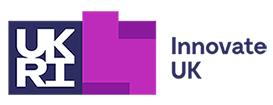UKRI Innovate KTN has launched a new round of funding competitions with a budget of £12 million: Resource Efficiency for Manufacturing & Materials (REforMM) (ktn-uk.org). Its focus is on the following areas: materials for the future economy; smart design; resilient supply chains; world class production; and longer in-use and reuse.
Five areas are highlighted in a new strategic report: Materials and Manufacturing Vision 2050 “Re-imagining Materials and Manufacturing Together”:
• Clean energy;
• Proactive regulations and policy:
• Future skills;
• Networked relations; and
• Evolving value models.
The report’s vision for UK materials and manufacturing in 2050 is that it is “sustainable, safe, advanced, agile and resilient”. The authors aim “to stimulate diverse cross-sector debate, facilitate alignment, promote transparency, and inspire creative and transformative action”.
The importance of international collaboration is stressed. Materials and manufacturing accounts for 61% of all business expenditure on UK R&D and in 2019 attracted 22% of all inward foreign direct investment into the UK economy, the report notes.
Imperatives are identified for UK manufacturing. It must be “net zero and resource efficient, resilient and responsive, and technologically advanced and digital”.
Innovate says UK manufacturing:
• “faces urgent challenges: climate change; resilience; and productivity;
• offers incredibly exciting opportunities and is a good career option; and
• has the talent and innovation infrastructure to realise its vision of being world-class”.
In the report’s Global Outlook, the demand for physical and manual skills is envisaged to decline by 30% by 2030 and the demand for technological and complex cognitive skills to rise by 50%, “including for high-level social and emotional skills as well as initiative-taking and entrepreneurship”.
The vision sees that ”detailed, objective assessments of need 10 to 20 years ahead are openly available. Technical and non-technical leadership skills are strong… Leaders adapt to constantly changing circumstances, and new technologies and interpersonal skills allow them to motivate their workforce through transformational change”.
“Regulatory frameworks are trusted to promote innovation and to protect intellectual property. The benefits of standards and regulations are recognised, and their use is stimulated by electronic access. Trust in standards grows.
“Critical challenges have been addressed, such as public purpose, definition of ‘green’, definition of ‘value added’, misinformation, and incrementalism,” the report says.
Link to download the report: Innovate UK Materials and Manufacturing Vision 2050 (ukri.org)
Feedback: The authors of the report are keen to stimulate debate and we welcome comment in confidence from members, which will help to inform EAMA’s engagement with Innovate UK. If you have any comments, please send them directly to Jack Semple (email: [email protected]) and, if possible, please copy them to Geoff Noon at MTA (email: [email protected]).

